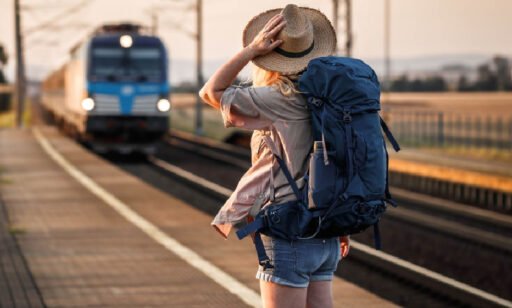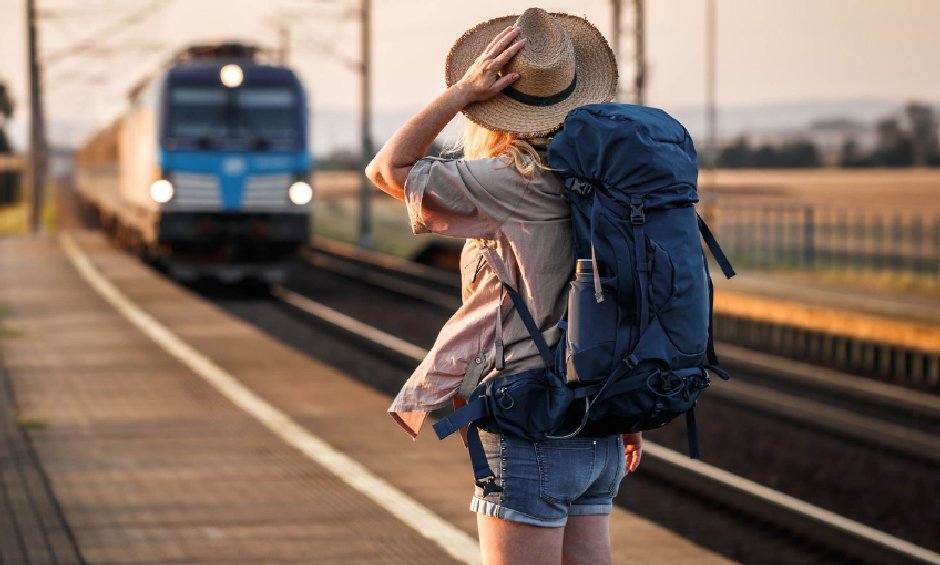Bright lights, big city—expensive adventures await with each step you take.
Yet, resourceful travelers know that even the priciest destinations can reveal hidden, affordable gems.
Armed with the right strategies, you can uncover the pleasures of opulent metropolises without the weight of a heavy price tag.
Smart Transportation
Navigating an expensive city requires savvy transit choices to conserve funds for other adventures. Public transportation is often the most economical option, allowing unlimited travel possibilities at a fraction of the cost of taxis or car rentals.
Investigating city passes that include transit access can result in additional savings. Many metropolises offer tourist-friendly travel cards, bundling multiple rides into a set fee, reducing your per-trip expenditure substantially.
Walking or cycling can be economical and enriching when distances are short, and the weather cooperates. It provides an intimate view of the city’s character.
Rentable bikes or scooters offer a middle ground between public transit and personal tours.
Ridesharing platforms can be cost-effective for longer journeys within urban confines, especially when splitting the fare with fellow travelers. Always compare this option with public transport costs and consider “shared” rides for even more savings.
Eating and Drinking on a Budget
Discovering local markets is a savvy move for economical dining, often spotlighting fresh, regional fare for a fraction of restaurant prices.
Since 2020, the rise of food apps and communal kitchens has reinvented budget eating in cities. These platforms often feature discounts, daily deals, and options to filter for the most affordable meals available.
Try embracing the cultural practice of “aperitivo” or “happy hour” typical in some cities, which may include a drink accompanied by a free snack or buffet, presenting substantial savings on your dining budget.
To savor a city’s gastronomy without overspending, target lunch as the main meal; many eateries offer “prix fixe” menus with multiple courses at a reduced price compared to dinner.
Lastly, staying hydrated doesn’t necessitate pricey bottled water. Carry a refillable bottle and use public drinking fountains when available, saving both money and the environment.
Planning Your Trip
Early planning can unearth discounts and deals not visible to the procrastinating eye, potentially saving you a significant sum.
Seek out off-peak travel times to benefit from lower demand and prices.
Thorough research can reveal free tourist attractions, discounts on cultural experiences, and public transport passes that cater to the budget-conscious.
Plan your itinerary around local street food eateries, weekly markets, and public parks where you can picnic. You can save money without missing out on the delicious food and fun defining city experiences.
Lastly, securing your stay at accommodation near Memorial Park will ensure you’re centrally located to explore and enjoy the area to its fullest.
Sightseeing Without Breaking the Bank
Exploring the nooks and crannies of a metropolis can be a manageable budget. Focus on walking tours, public landmarks, and free days at museums to capture the city’s essence without financial strain.
Invest in a day pass for public transit to cover more ground cost-effectively.
City parks and public spaces often boast free attractions, such as statues, historical markers (providing a glimpse into the local heritage), and vibrant community events.
Joining local gatherings, such as festivals or open-air concerts, immerses you in cultural vibrancy without needing expensive tickets or entrance fees.
Always remember that a city’s charm doesn’t rest solely in costly venues. Instead, wandering neighborhood streets and soaking in the ambiance can provide invaluable experiences as enriching as any pricey attraction.
Shopping and Souvenirs
When eyes gravitate toward glittering storefronts, remember prudence, especially in a city with premium pricing on goods. Seek local markets or thrift stores where unique finds can offer memorable tokens without hefty price tags.
Explore artisan markets for handcrafted mementos of genuine value. They embody the local culture and are often reasonably priced.
Districts outside tourist hubs may harbor shops with lower prices and authentic wares, providing an immersive shopping experience.
When seeking souvenirs, avoid the convenience of airport gift shops. They typically charge a high markup on standard goods and offer less cultural significance.
In lieu of tangible goods, consider capturing memories through photography or journaling. These activities carry a personal mark on your journey and cost little to nothing.
Saving on Entertainment
Seek free days at museums, art galleries, or city-run events to satiate your cultural palate. Many high-caliber institutions offer specific days or hours where admission fees are waived.
Research local event calendars for free concerts, outdoor movie nights, and festivals that often encapsulate the city’s flavor and vibrancy.
Consider also leveraging discounts available with travel cards or tourist passes, which can offer bundled entertainment options at significantly reduced costs.
Embrace the myriad street performances and public art displays that cities often host. These spontaneous and dynamic expressions of local talent offer a direct line to a place’s heart and soul.
Staying Connected
Maintaining communication channels is essential for navigating through high-cost urban landscapes.
In a bustling metropolis, Wi-Fi becomes as valuable as currency. To stay in touch without incurring excessive data costs, seek out cafes, libraries, and public spaces offering free internet access.
Municipal Wi-Fi networks, when available, provide essential connectivity. Use messaging apps that consume minimal data, or consider purchasing a local SIM card for longer stays to avoid expensive roaming charges.
Finally, to avoid costly international calls, embrace the convenience of VoIP services like Skype or WhatsApp for voice and video communication.
Regularly backing up your photos and data to a cloud service can also protect irreplaceable memories and information should your device get lost or stolen, further ensuring that your digital lifelines remain intact while exploring vibrant urban jungles.
Safety and Health
A heightened sense of awareness is crucial when roaming through bustling metropolises. Pay close attention to local advisories and stay informed about neighborhoods that are best avoided, especially after dark.
Healthcare systems vary widely by city; know the location of the nearest clinic or hospital. Travel insurance is strongly recommended.
Regarding nourishment, people should favor trusted food outlets and drink bottled water to mitigate the risk of foodborne illnesses, which are more prevalent in some urban areas.
Maintaining your well-being in an unfamiliar urban environment extends to mental health. Pacing your itinerary can help you acknowledge feelings of culture shock or stress.
Should you feel overwhelmed, remember that seeking support—a friendly local, hotel staff, or a wellness app—is a sign of strength, not vulnerability.
Conclusion
The key to budget travel in expensive cities is leveraging local knowledge, tapping into community-driven platforms, and embracing cultural nuances. This approach conservatively manages expenses and enriches your journey with authentic and memorable encounters.
Ultimately, your ability to savor the essence of the world’s most renowned metropolises without depleting your wallet correlates with your willingness to immerse and adapt.
And remember, real luxury often resides not in extravagance but in the depth of engagement and the stories you unfold.
Additional resources:
-
Hybrid cars are ideal for travel saving money effectively
-
A vacation boosts your mental health as well as physical health





